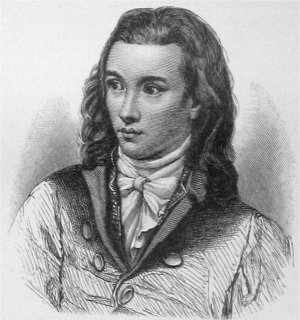Novalis słynne cytaty
„Historia tworzy sama siebie.”
Źródło: Leksykon złotych myśli, wyboru dokonał K. Nowak, Warszawa 1998.
Jeder Engländer ist eine Insel. (niem.)
Źródło: Allgemeines Brouillon
„Filozofia jest poematem rozumu.”
Źródło: Leksykon złotych myśli, wyboru dokonał K. Nowak, Warszawa 1998.
Novalis Cytaty o myślach
„Treścią dramatu jest stawanie się lub przemijanie.”
Źródło: Leksykon złotych myśli, wyboru dokonał K. Nowak, Warszawa 1998.
„Artysta opiera się na człowieku jak statua na piedestale.”
Źródło: Leksykon złotych myśli, wyboru dokonał Krzysztof Nowak, Warszawa 1998.
„Magia – to sztuka arbitralnego wykorzystywania świata zmysłowego.”
Źródło: Leksykon złotych myśli, wyboru dokonał K. Nowak, Warszawa 1998.
„Hipotezy – to sieci, i tylko ten, kto je rzuca, coś łowi.”
Źródło: Leksykon złotych myśli, wyboru dokonał K. Nowak, Warszawa 1998.
„Im bardziej grzeszni się czujemy, tym lepszymi jesteśmy chrześcijanami.”
Źródło: Leksykon złotych myśli, wyboru dokonał K. Nowak, Warszawa 1998.
„Natura to instynkt sztuki – dlatego wszelkie rozróżnianie natury i sztuki to zwykła gadanina.”
Źródło: Leksykon złotych myśli, wyboru dokonał K. Nowak, Warszawa 1998.
Novalis Cytaty o myśleniu
„Męczennicy – to bohaterowie ducha.”
Źródło: Leksykon złotych myśli, wyboru dokonał K. Nowak, Warszawa 1998.
Źródło: Leksykon złotych myśli, wyboru dokonał K. Nowak, Warszawa 1998.
„Tylko to, co niedoskonałe, może być pojęte.”
Źródło: Leksykon złotych myśli, wyboru dokonał K. Nowak, Warszawa 1998.
Źródło: Leksykon złotych myśli, wyboru dokonał K. Nowak, Warszawa 1998.
„Pisma są myślami państwa, archiwa – jego pamięcią.”
Źródło: Leksykon złotych myśli, wyboru dokonał K. Nowak, Warszawa 1998
Novalis cytaty
„Do grubego kloca gruby klin.”
Źródło: „Literatura na świecie”, nr 9/1984, s. 377.
„Świat staje się snem, sen staje się rzeczywistością.”
Źródło: Jostein Gaarder, Świat Zofii. Cudowna podróż w głąb historii filozofii, Warszawa 1995, tłum. Iwona Zimnicka, s. 372.
Źródło: Nie jedno ma imię: Aforyzmy o miłości, wyb. Kiejstut R. Szymański, Wrocław 1997.
„Osobowość – to romantyczny element jaźni.”
Źródło: Leksykon złotych myśli, wyboru dokonał K. Nowak, Warszawa 1998.
„Logika – to gramatyka myślenia.”
Źródło: Leksykon złotych myśli, wyboru dokonał K. Nowak, Warszawa 1998.
Novalis: Cytaty po angielsku
Pupils at Sais (1799)
Die Möglichkeit aller Philosophie ... dass sich die Intelligenz durch Selbstberührung eine Selbstgesezmäßige Bewegung - d.i. eine eigne Form der Tätigkeit gibt.
Schriften, p. 63, as translated in Walter Benjamin: Selected Writings: Volume 1, 1913-1926 (1996), p. 133
Metaphysics, again, is the Dynamics of Thought; treats of the primary Powers of Thought; occupies itself with the mere Soul of the Science of Thinking. Metaphysical ideas stand related to one another, like thoughts without words. Men often wondered at the stubborn Incompletibility of these two Sciences; each followed its own business by itself; there was a want everywhere, nothing would suit rightly with either. From the very first, attempts were made to unite them, as everything about them indicated relationship; but every attempt failed; the one or the other Science still suffered in these attempts, and lost its essential character. We had to abide by metaphysical Logic, and logical Metaphysic, but neither of them was as it should be.
Pupils at Sais (1799)
“Someone arrived there — who lifted the veil of the goddess, at Sais.”
But what did he see? He saw — wonder of wonders — himself.
Novalis here alludes to Plutarch's account of the shrine of the goddess Minerva, identified with Isis, at Sais, which he reports had the inscription "I am all that hath been, and is, and shall be; and my veil no mortal has hitherto raised."
Pupils at Sais (1799)
The highest statement of cognition must be an expression of that fact which is the means and ground for all cognition, namely, the goal of the I.
Fichte Studies § 556
